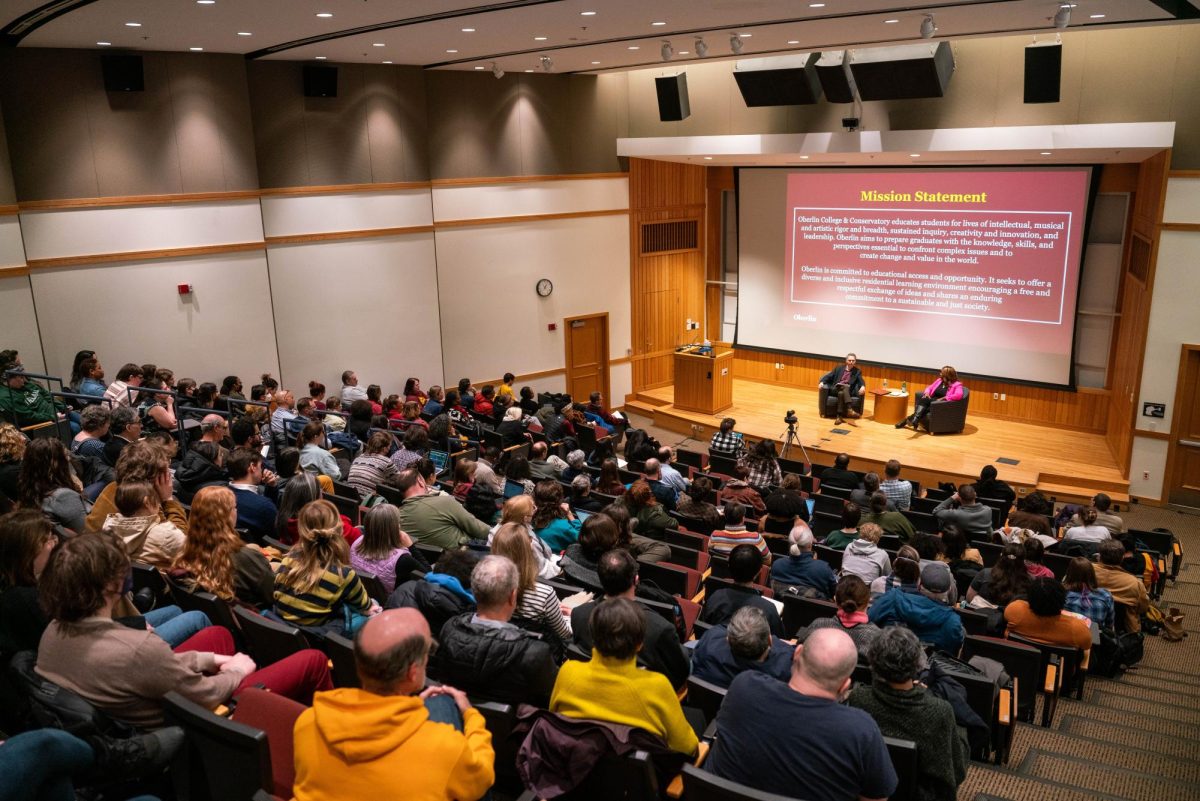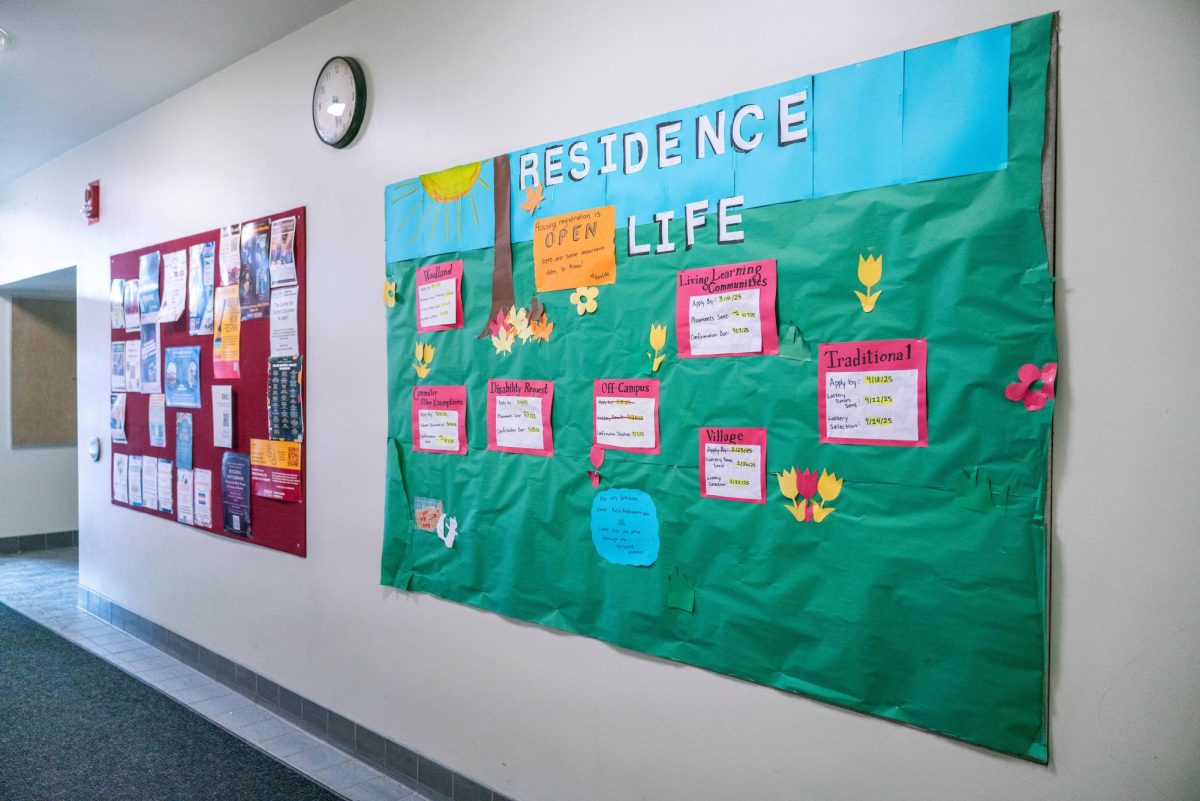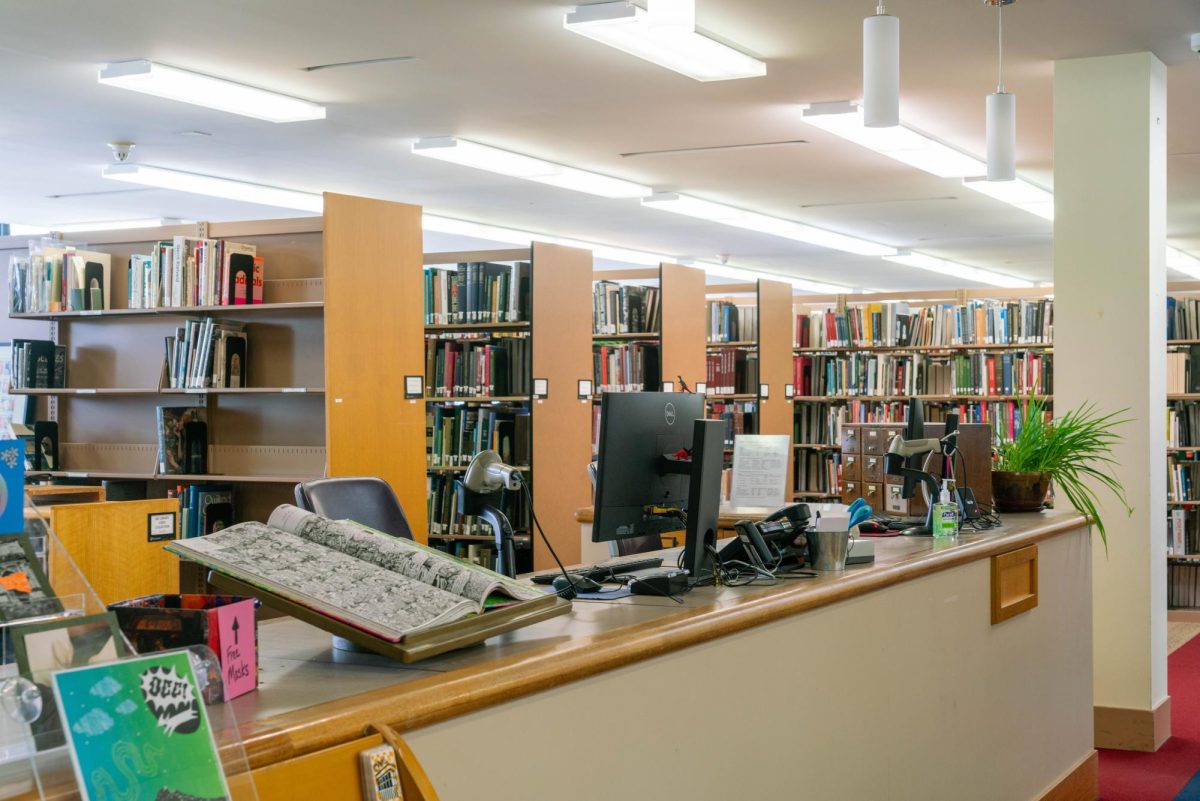On Sept. 5, President Carmen Twillie Ambar sent an email to the Oberlin community announcing the creation of five new majors at Oberlin: Business, Financial Economics, Communication Studies, Recording Arts and Production, and Music Theater. Environmental Science and Data Science were approved by faculty Wednesday.
The new Recording Arts and Production major and Music Theater major, which will officially launch next fall, will both be available as Bachelor of Music degrees in the Conservatory.
“Thanks to the work of our dedicated faculty, many of whom served on the One Oberlin Oversight and Advisory Committee, we mark the creation of five new degree programs in the College and Conservatory and additional new programs that will come to fruition over the coming year,” President Ambar wrote.
The One Oberlin Oversight Advisory Committee is a continuation of One Oberlin, a 2018 report executed by the Academic and Administrative Program Review, which detailed recommendations to rid the institution of the structural deficit created by its operating budget as well as the College’s misuse of its endowment. In December 2023, the OOOAC began meeting with administrative, academic, and student leadership to locate opportunities for institutional growth.
“President Ambar has charged the One Oberlin Oversight Advisory Committee, which was constituted as part of the One Oberlin recommendations, to lead the institution in its next phase of planning,” the Oberlin website reads. “The committee is charged with gathering and examining significant opportunities that enhance our mission and values, deepen and extend our excellence, and have the potential to generate significant new revenue that we can reinvest in our core enterprise.”
Among these opportunities was the potential to create new undergraduate majors, which the institution has not done since it created Cinema Studies, now called Cinema and Media, which was approved by faculty in 2003.
“OOOAC consulted extensively with offices and academic departments across campus to generate ideas for new courses of study based upon student and faculty interest,” Senior Associate Dean of the College of Arts and Sciences and Chair of the Educational Plans and Policies Committee Laura Baudot wrote in an email to the Review. “OOOAC explored these generative ideas against a backdrop of national trends in higher education and with explicit concern for crafting a liberal arts education responsive and adaptable to 21st-century needs and concerns. Ideas for new courses of study were included in the supplement to OOOAC’s report and will be subject to the normal process of review and approval by the appropriate faculty governance committees and divisional faculty bodies.”
According to Assistant Professor of Writing and Communication Cortney Smith, the Office of the Dean of the College of Arts and Sciences approached the Writing and Communications department in the summer of 2023 about the possibility of creating a major. Until April 2024, the Writing and Communications program only existed through the Writing and Communications minor.
“What the dean’s office told us is that it has been shown that students who didn’t decide to go to Oberlin, part of the interest that they had was in communication studies, and that’s why they decided to go to another place,” Smith said.
Smith cited the 14 students that have already declared the Communication Studies major since its inception last April as proof of the major’s need on campus, both as a complement to other degrees like Politics, Business, or Biology, and by itself.
“To be honest, I was surprised by how many majors we got so quickly,” Smith said. “I think that demonstrates that it is fulfilling something that part of the student body was looking for.”
Since 2018, the College has also added 10 new integrative concentrations including Business, Journalism, and International Affairs. Baudot said that many of these integrative concentrations, which combine experiential learning with academic offerings from various divisions, led to new majors.
“We will continue to offer integrative concentrations,” she wrote. “Integrative concentrations provide an innovative approach to exploring new curricular areas and help to establish student interest and feasibility from an institutional standpoint. The model itself — a curricular pathway that includes experiential learning — has been a source of inspiration for some of the new majors. The new majors that build on the success of the ICs, such as Business and Data Science, provide opportunities for greater depth and breadth of study than is possible with a minor or integrative concentration.”
Baudot said the Committee also discussed several “curricular pathways,” but ultimately decided against recommending them.
Information about each new major will make its way to Oberlin website in the coming weeks.











